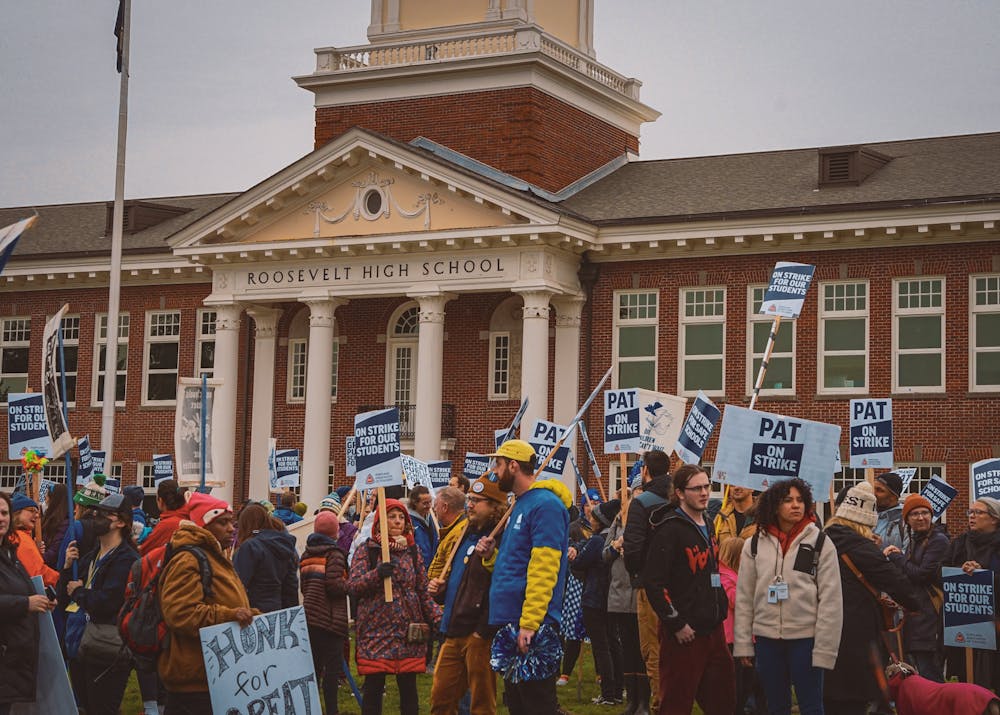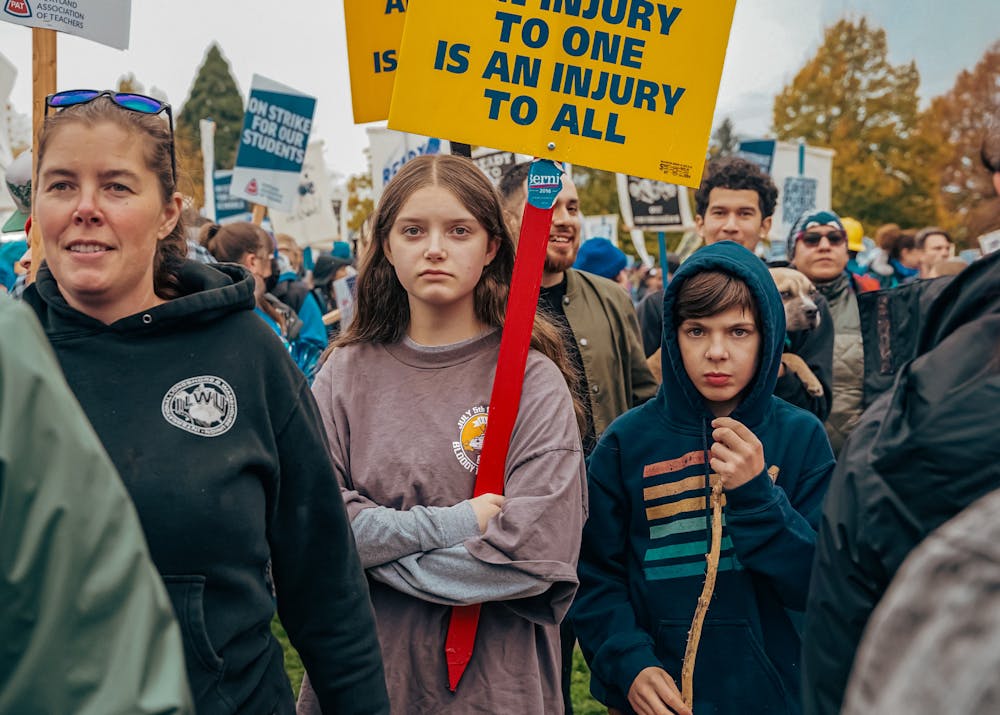How the Portland teachers' strike is affecting UP’s education majors
One week into the Portland Public School District’s first ever teacher strike, University of Portland education majors are getting a lesson outside the classroom about challenges that come with their chosen profession.
The strike, which started on Nov. 1, has impacted approximately 43,000 students in the district, leaving their guardians to deal with the indirect results. The Portland Association of Teachers (PAT) is requesting the district to increase their salaries, reduce classroom sizes and offer funding for additional resources.
“I'm having an eyewitness account of the stress from the strike and how it's impacting teachers themselves,” senior education major Janna King said. “I think without that firsthand knowledge, I mean, it almost feels like teachers get to take some time off to picket and that’s not the case.”
With negotiations between PAT and the school district ongoing, education majors are losing out on their field experience, and for seniors specifically, their student teaching time.
The School of Education is partnered with eight schools in the Portland School District.
Sophomore elementary education major Sophia VanCamp is placed at Astor elementary school for her field experience. As an anchor seminar leader, VanCamp hears her first-year students talk about how the strike is impacting them.
“I have half of the first-year education majors in my class and a lot of them are concerned about this, especially because a lot of my students got their hours late,” VanCamp said. “A lot of people in the school of ed have been struggling with starting their hours because there’s not enough classrooms to put us in.”







